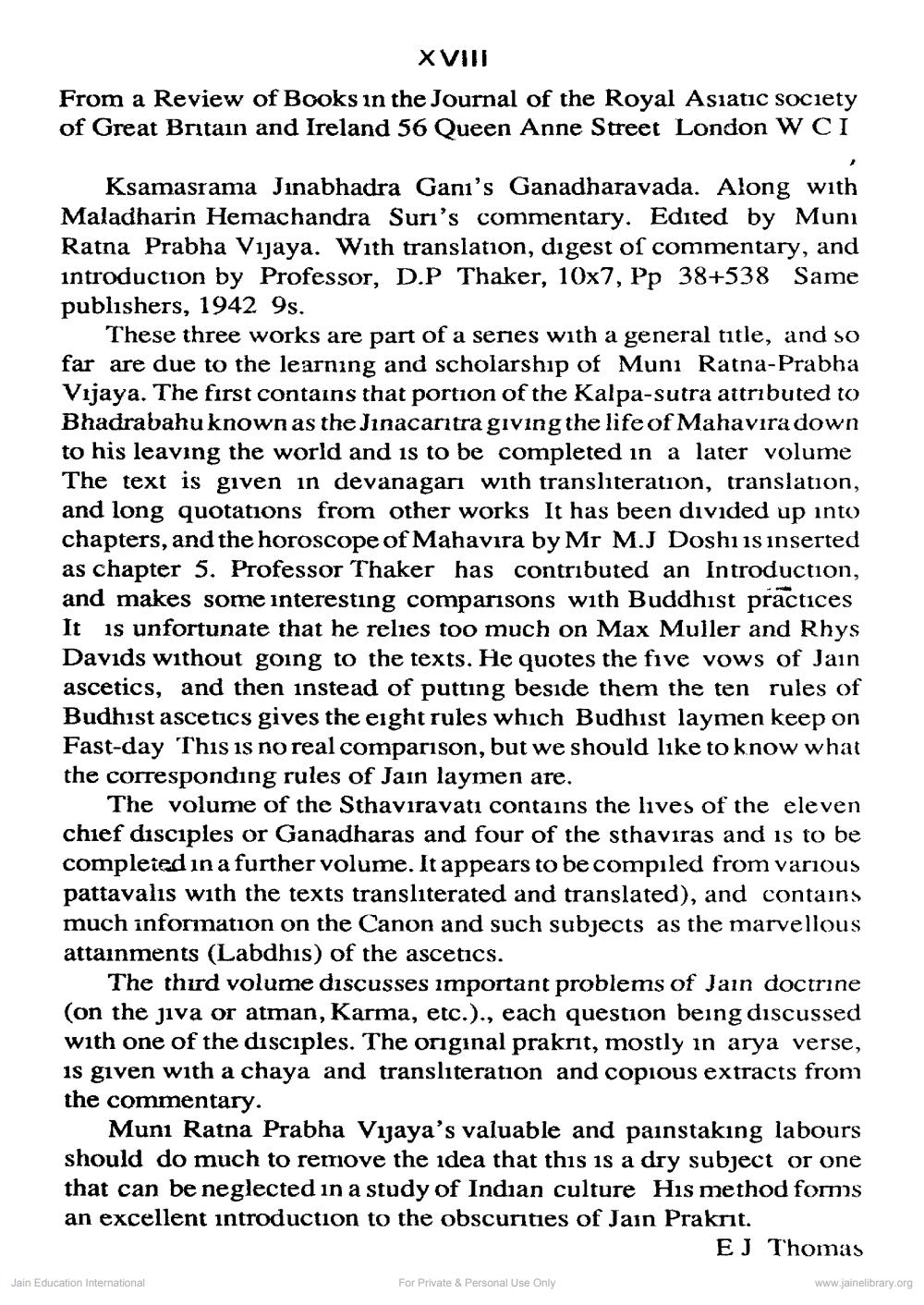________________
XVIII
From a Review of Books in the Journal of the Royal Asiatic society of Great Britain and Ireland 56 Queen Anne Street London W CI
Ksamasrama Jinabhadra Gani's Ganadharavada. Along with Maladharin Hemachandra Suri's commentary. Edited by Muni Ratna Prabha Vijaya. With translation, digest of commentary, and introduction by Professor, D.P Thaker, 10x7, Pp 38+538 Same publishers, 1942 9s.
These three works are part of a series with a general title, and so far are due to the learning and scholarship of Muni Ratna-Prabha Vijaya. The first contains that portion of the Kalpa-sutra attributed to Bhadrabahu known as the Jinacaritra giving the life of Mahavira down to his leaving the world and is to be completed in a later volume The text is given in devanagari with transliteration, translation, and long quotations from other works It has been divided up into chapters, and the horoscope of Mahavira by Mr M.J Doshi is inserted as chapter 5. Professor Thaker has contributed an Introduction, and makes some interesting comparisons with Buddhist practices It is unfortunate that he relies too much on Max Muller and Rhys Davids without going to the texts. He quotes the five vows of Jain ascetics, and then instead of putting beside them the ten rules of Budhist ascetics gives the eight rules which Budhist laymen keep on Fast-day This is no real comparison, but we should like to know what the corresponding rules of Jain laymen are.
The volume of the Sthavıravati contains the lives of the eleven chief disciples or Ganadharas and four of the sthaviras and is to be completed in a further volume. It appears to be compiled from various pattavalis with the texts transliterated and translated), and contains much information on the Canon and such subjects as the marvellous attainments (Labdhis) of the ascetics.
The third volume discusses important problems of Jain doctrine (on the jiva or atman, Karma, etc.)., each question being discussed with one of the disciples. The original prakrit, mostly in arya verse, is given with a chaya and transliteration and copious extracts from the commentary.
Muni Ratna Prabha Vijaya's valuable and painstaking labours should do much to remove the idea that this is a dry subject or one that can be neglected in a study of Indian culture His method forms an excellent introduction to the obscurities of Jain Prakrit.
EJ Thomas
Jain Education International
For Private Personal Use Only
www.jainelibrary.org




